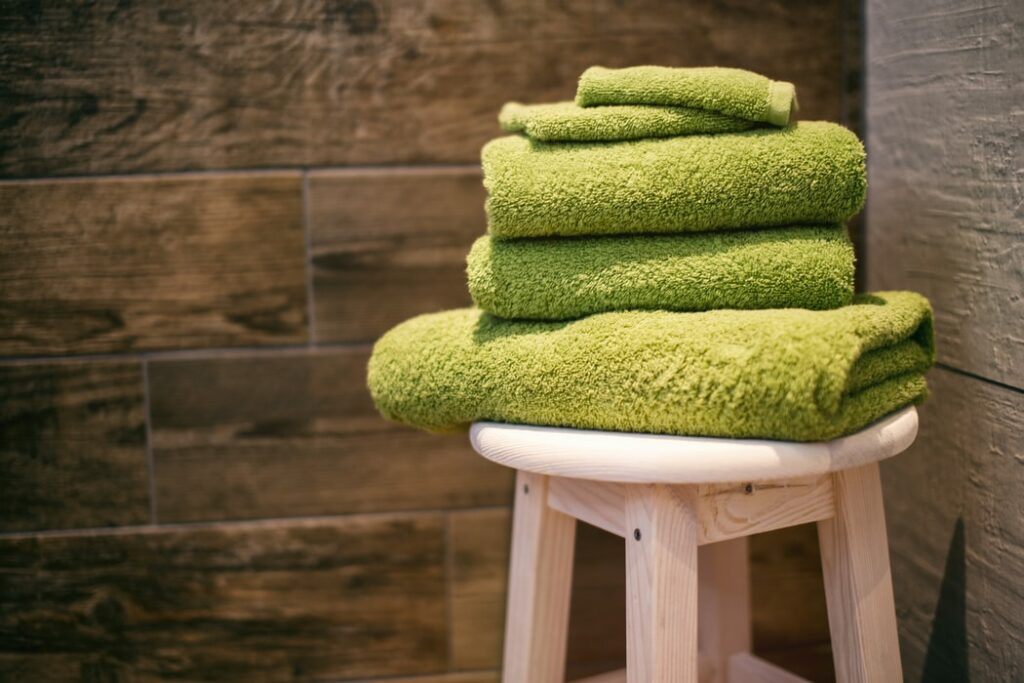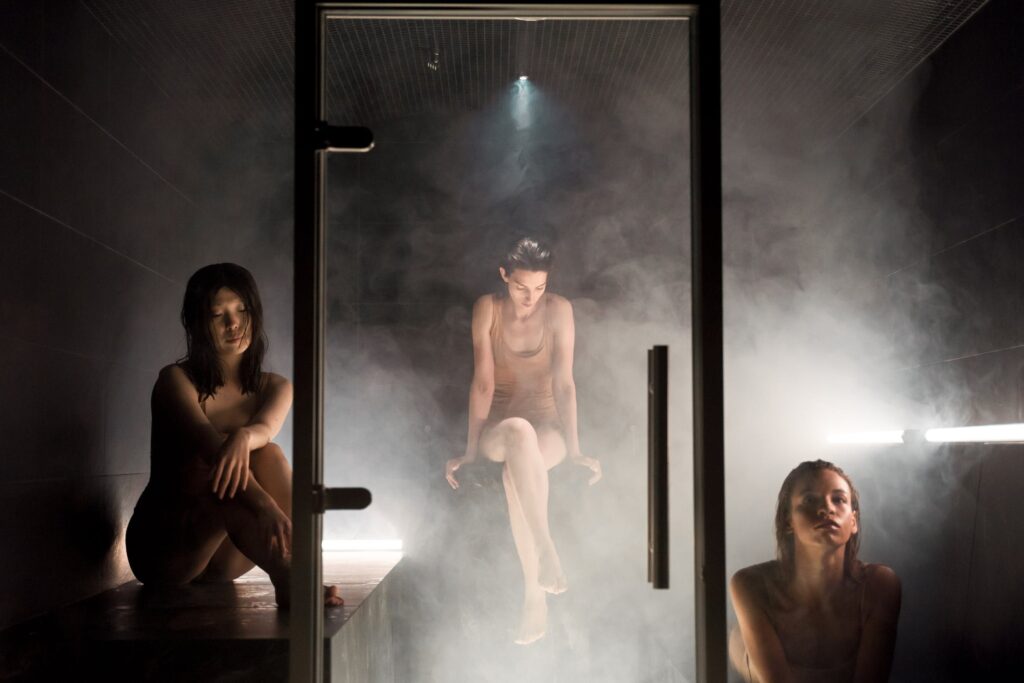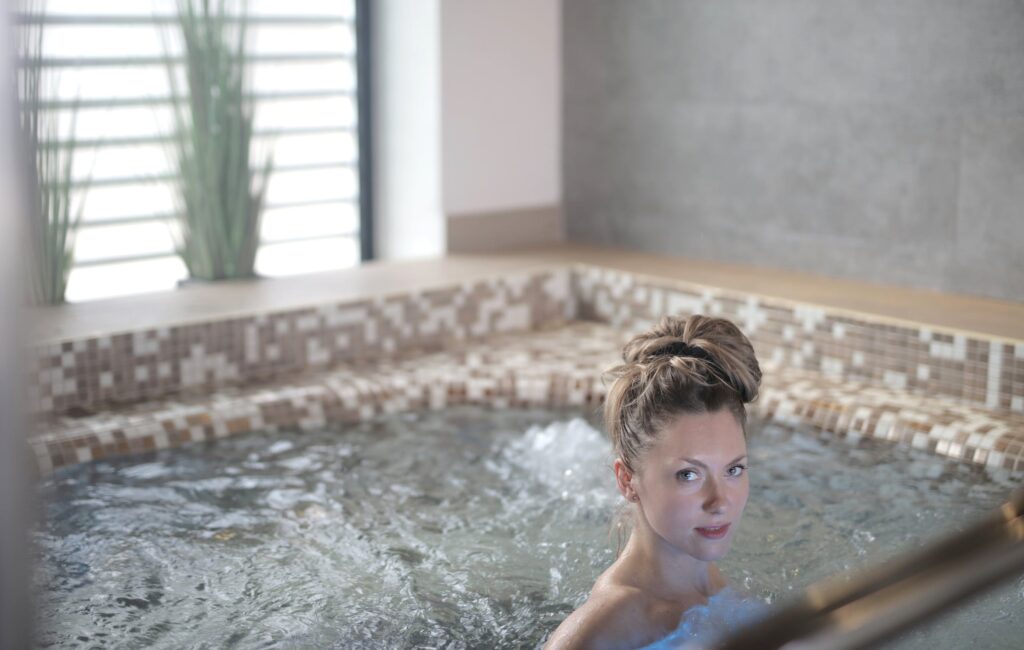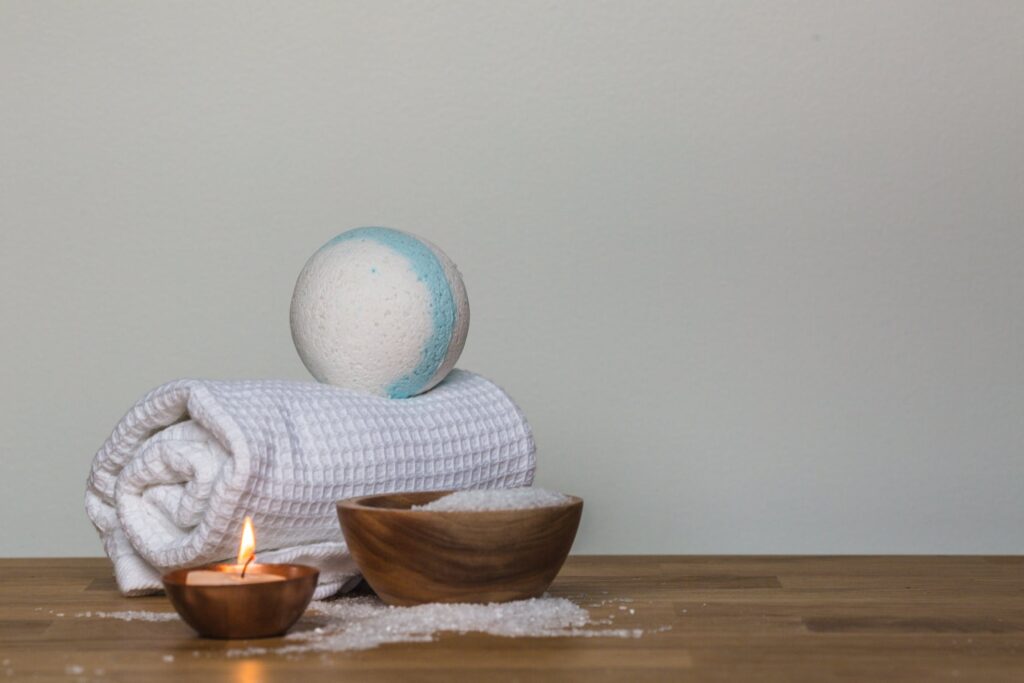Do you want to know if you can still relax in a portable sauna even though you're having a baby? Many people wonder if portable saunas are safe and effective for expectant mothers. We go into this subject to provide more information on pregnant wellness and relaxation.
Expectant mothers can use portable saunas only if they adhere to a few important safety guidelines. It's important to keep sauna use within acceptable temperature limits and time constraints, although the mild heat and purifying benefits may be soothing during pregnancy. Let's talk about how to safely and effectively use a portable sauna so that you and your child can relax and unwind comfortably.
Relaxation and possible benefits from sauna use during pregnancy. However, getting your doctor's approval before using them is best. Reputable prenatal care experts stress the need to utilise saunas sparingly and cautiously throughout pregnancy. According to their studies, sauna use can be beneficial and safe if the temperature is kept low and sessions are kept to a minimum.
With these professional tips in mind, you can take a much-needed break with the peace of mind from knowing you're doing what's best for you and your baby. In this blog post, we will discuss the benefits and risks of using a portable sauna while pregnant and address some of the most often-asked questions about this topic.
What You Need To Know About Saunas And Pregnancy?
You may be concerned about using the sauna while pregnant. Relaxing in a hot sauna to ease back pain and other pregnancy symptoms may sound appealing. You and your unborn child should know the potential dangers of using a sauna before you do so.
What Are The Risks Of Sauna Use During Pregnancy?
The major dangers of utilising a sauna while pregnant are the extreme and persistent heat. This heat may be soothing, but it might harm your unborn child. Premature infants have little control over their internal temperature. This implies they would faint in a sauna's intense heat.
Is It Safe To Use The Sauna While Pregnant?
If your doctor gives you the go-ahead to use a sauna when expecting a child, spend at most 15 minutes there. Saunas are generally safe for pregnant women, although some experts advise against using them. Your kid might have problems even if you only spend briefly in the sauna. If sauna usage causes you to feel dizzy or queasy, stop immediately. This might be a symptom of internal overheating.
It's also worth noting that not every sauna is created equal. Some are treated differently and heated at a different temperature than others. These variables affect the time it takes for your body to reach a potentially dangerous temperature for your baby.
Do Good Things Happen When You Take a Sauna?
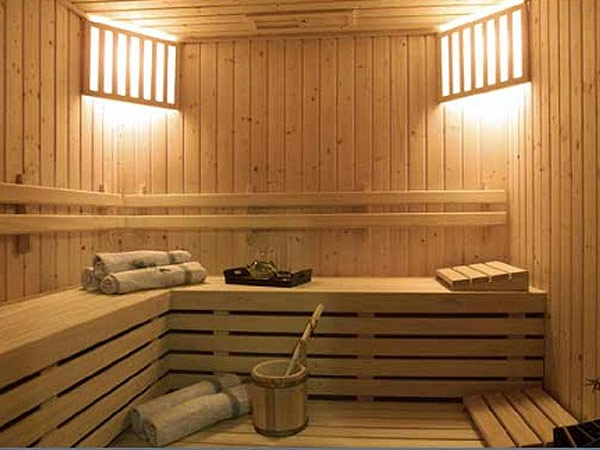
The advantages of utilising a sauna for those who aren't expecting a child include:
- Stress relief
- Relieving muscle soreness after a difficult workout
- Pain relief
- Detoxification
In a sauna, you may also sweat off toxins through perspiration. It's like when you go to the gym. Consult your physician before utilising a sauna, regardless of whether or not you are pregnant. Some preexisting medical issues may become more severe in the excessive heat.
Can Pregnant Women Use Hot Tubs?
Hot tub use during pregnancy carries the same health hazards as sauna use. However, a hot tub can help you feel warmer much more quickly. This is because steaming water is being poured over you. If you sit near or against the jets in a hot tub, you'll get warmer quickly. In most cases, the water for the hot tub will enter here. Water temperatures should be kept below 95 degrees Fahrenheit (35 degrees Celsius), according to the advice of certain specialists. You should take necessary safety measures if your doctor gives you the OK to use a hot tub while pregnant occasionally. Some examples are:
- If you feel dizzy or queasy while in the hot tub, get out immediately.
- Do not use a hot tub frequently or daily.
- Avoid getting too close to the jets that supply the hot water in the hot tub.
- Do not stay in for more than 10 minutes.
You can only compare some hot tubs to a sauna. They might be kept either warmer or cooler than usual, depending on how well they are watched.
Pregnancy And The Use Of Complementary And Alternative Medicine
Alternative or "complementary" treatments are those that go beyond what is typically given by a doctor. Acupuncture, massage, and chiropractic care are just a few examples of the various alternative treatments. They are also known as "integrative medicine" in some circles.
Some women seek alternative treatments during pregnancy to alleviate discomforts like morning sickness and backache. It's possible that some expectant mothers will utilise these treatments to ease into labour and have fewer complications. Alternative and complementary therapies are advised in place of sauna use during pregnancy.
Acupressure
You may be practising acupressure without even knowing it. Have you ever tried massaging your temples to relieve a headache? Acupressure is when you press down firmly with your thumbs or fingers on certain acupuncture sites. Instead of using needles, acupressure practitioners apply pressure to the same acupuncture locations. Morning sickness (in the form of sea bands or comfort bands worn around the wrists) and back pain are only two of the many pregnancy problems that can be helped with acupressure. It may also ease the discomfort of labour contractions.
Acupuncture
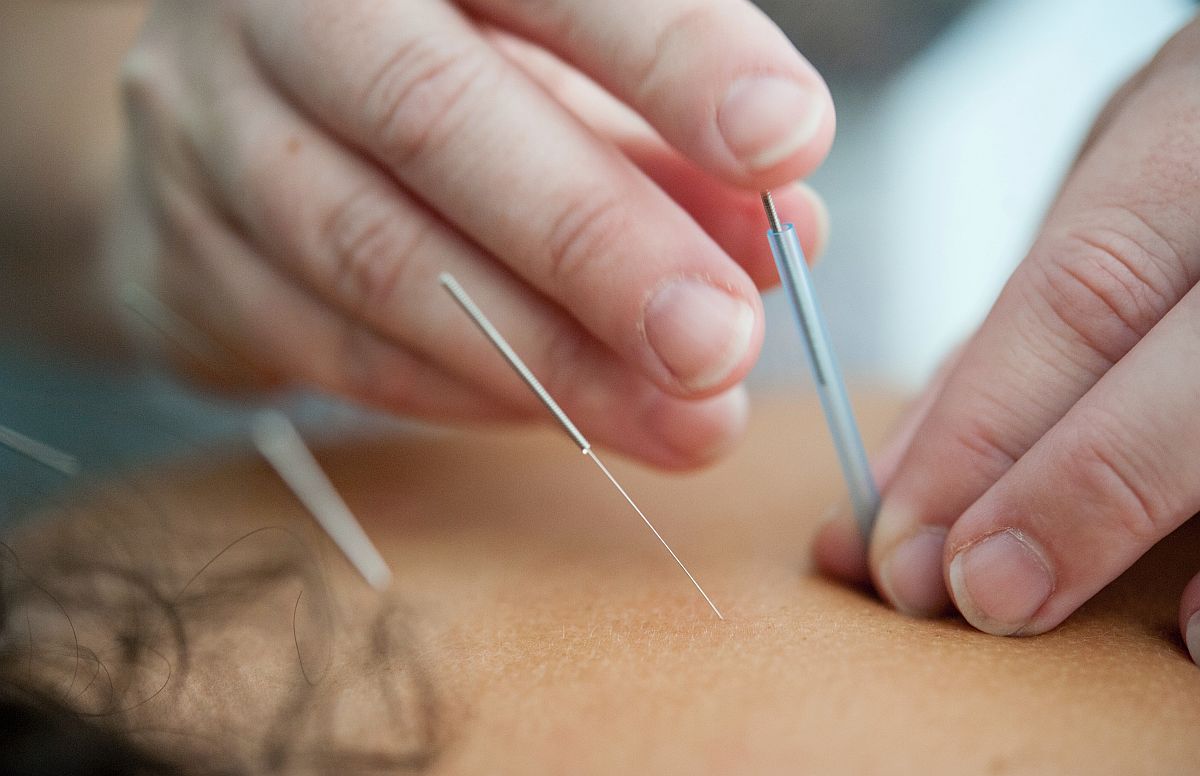
Acupuncture involves using disposable, hair-thin needles to stimulate a variety of acupoints all over the body (each of which corresponds to a different organ). Acupuncture, like acupressure, can help the body reestablish its natural equilibrium and cure itself. Morning sickness, constipation, backache, haemorrhoids, breech presentation, labour discomfort, and postpartum inadequate milk supply can all be helped by acupuncture, and there are no negative side effects!
Aromatherapy
Ingesting essential oils is never a good idea, whether you're pregnant or not. Rather, they are breathed or mixed with a carrier liquid for a topical application like a spot treatment or bath soak. Aromatherapy is growing in popularity among pregnant women as a safe and effective means of treating nausea, muscle aches, poor sleep, and other uncomfortable symptoms that may arise during pregnancy, but for which conventional medicine is not an option.
Chiropractic Medicine
Joints and the spine are realigned by physical manipulation by chiropractors. Back and sciatic discomfort are common pregnant complaints; chiropractic treatment can ease them. When seeking chiropractic therapy during pregnancy, finding a chiropractor with experience with pregnant patients is important.
Exercise
Prenatal exercise has been linked to fewer health issues for mum and baby after birth. This includes a quicker recovery time, less discomfort in the postpartum period, less stress, better sleep, less constipation, and less back and pelvic pain.
Hydrotherapy
Like to take lengthy, soothing baths to unwind throughout your pregnancy? Have you ever considered taking a bath to ease the pain of labour? Hydrotherapy is the practice of using warm (not hot) water for therapeutic purposes to alleviate the pain associated with pregnancy. A warm bath is a great alternative to a sauna, which is unsafe during pregnancy. Some medical professionals advise expecting mothers to avoid swimming in water warmer than 95 degrees Fahrenheit for no more than 10 minutes.
Massage Therapy
From headaches & heartburn to backache and sciatica, massaging appropriately during pregnancy can help ease many pregnancy symptoms. Whether the masseuse is your doting husband or a skilled professional, this is true. Labour discomfort can also be greatly reduced by receiving a massage. Back work benefits greatly from a counter-pressure massage.
Meditation
You may deal with pregnancy's many mental and physical strains by using deep relaxation techniques like meditation and visualisation. Stress, blood pressure, and mental well-being can all be improved via relaxation and concentration methods. Who wouldn't benefit from that, especially when expecting?
Reflexology
Pregnancy-related discomforts can be alleviated by reflexology, a therapy in which pressure is administered to specific locations of the foot, hands, and ears. Performing reflexology on certain regions of the foot can also promote labour contractions, which is beneficial if you're overdue but potentially dangerous if you're not close to your due date. So, when you go into labour, ensure your reflexologist knows to avoid those sensitive spots on your feet.
Unfortunately, sauna use is not encouraged during pregnancy, but many different therapies are available to assist in alleviating the discomforts of the nine months. Ensure you and your unborn child are safe by seeing your doctor before beginning any new alternative or complementary therapies during your pregnancy.
Safety First: Pregnancy Considerations
The health and safety of the expecting woman and her unborn child is paramount. While there are many reported benefits to sauna use, it is important to determine if it is safe for pregnant women.
Heat And Pregnancy
Excessive heat exposure during pregnancy has been linked to congenital disabilities in children. Birth abnormalities have been related to high body temperatures, especially in the first trimester of pregnancy. As a result, expecting mothers should exercise caution if they ever consider using a sauna.
Cardiovascular Strain
Saunas raise heart rate and lower blood pressure momentarily. Pregnant women are particularly vulnerable to these effects since their bodies are already working hard to sustain the pregnancy. Considering the impact on your heart and lungs before utilising a portable sauna is important.
Dehydration
Saunas increase the risk of dehydration, which is already higher for pregnant women. The mother's excessive sweating in a sauna might affect the amniotic fluid that cushions the developing infant. Sauna use should be approached with caution during pregnancy due to the importance of maintaining adequate hydration.
Overheating And Fetal Development
Temperature swings during pregnancy might hurt the growing baby. Saunas and other places where people spend lengthy periods in extremely hot conditions may pose a risk to the health of an unborn child. It's better to be safe than sorry while studies are continuing.
Consulting Your Healthcare Provider
Sauna use is among the many activities that should be discussed with a doctor before being attempted during pregnancy. A healthcare expert may evaluate the specific hazards associated with each pregnancy and offer individualised advice. A pregnant woman interested in using a portable sauna can benefit from her doctor's advice, which will be tailored to her circumstances.
Taking Baby Steps With Caution
Change and excitement are in the air throughout pregnancy. The health and safety of the woman and her unborn child should always come first, regardless of how appealing a portable sauna's soothing effects may be. If you're expecting a child, skip the sauna and try prenatal yoga or meditation.
Amazing as it may be, pregnancy is a wonderful adventure with many options and decisions. While the thought of utilising a portable sauna during pregnancy may sound enticing, serious health issues must be addressed. Because you and your unborn child's health are so important, you should talk to your doctor before doing anything that might affect your pregnancy. A happy and successful transition into motherhood is possible, and a healthy pregnancy is a crucial first step.
Remember that every pregnancy is different, so it's important to tailor choices to each person's health status. Keep yourself well-informed, take precautions, and enjoy this peaceful new chapter with open arms.
FAQs About Sauna
Using portable saunas during pregnancy is a topic of concern and caution. The primary issue revolves around the potential effects of elevated body temperature on the developing fetus. Pregnant women are already experiencing physiological changes, and their bodies are working hard to maintain a stable environment for the baby's growth.
The use of saunas, even in portable form, can increase the body temperature beyond recommended levels, potentially leading to hyperthermia. Elevated body temperature can adversely affect the neural tube development of the fetus, increasing the risk of birth defects and miscarriage. Therefore, it is generally advised to err on the side of caution and avoid using portable saunas during pregnancy.
The risks associated with using portable saunas during pregnancy are multifaceted. Beyond the concern about elevated body temperature and hyperthermia, there's the risk of dehydration. Pregnant women are more sensitive to fluid balance changes, and the heat from saunas can contribute to fluid loss through excessive sweating.
Dehydration during pregnancy can lead to complications such as urinary tract infections, preterm contractions, and even premature labor. Additionally, prolonged exposure to high temperatures can impact blood circulation and oxygen delivery to the fetus, potentially affecting its overall development. It's important to recognize that the delicate balance of the pregnancy journey can be disrupted by the intense heat and humidity of saunas, making it advisable for pregnant women to refrain from using them.
While some individuals may argue that using portable saunas during pregnancy offers relaxation and certain therapeutic benefits, scientific evidence supporting these claims is limited. The potential risks associated with sauna use during pregnancy tend to outweigh any possible benefits.
Alternative methods of relaxation and pain relief, such as prenatal yoga, meditation, or warm baths, provide safer options that are less likely to elevate body temperature to risky levels. Pregnant women should prioritize the health and well-being of themselves and their babies, avoiding potentially risky activities like sauna usage.
The duration of sauna sessions does influence the degree of temperature elevation and potential risks, but even shorter sessions can pose a risk to pregnant women. Pregnant individuals have a reduced capacity to dissipate heat due to hormonal changes and increased blood flow to the skin's surface.
This means that even a brief period in a sauna can cause a notable increase in body temperature, potentially leading to complications. The body's thermoregulatory mechanisms are already challenged during pregnancy, and additional stress from sauna heat could negatively impact the baby's development. Consequently, it is advisable for pregnant women to abstain from using portable saunas altogether.
Certainly. Pregnant women have a variety of safe and enjoyable alternatives for relaxation that do not carry the same risks as using saunas. Prenatal yoga is an excellent choice, as it combines gentle stretches with breathing exercises to promote relaxation and flexibility. Meditation and deep breathing techniques can also help alleviate stress and create a sense of calm.
Swimming in a lukewarm pool is another effective way to relax and ease any physical discomfort. Additionally, indulging in a warm bath at home can provide soothing relief without the concerns associated with sauna use. These alternatives not only prioritize the health and well-being of both the mother and the baby but also offer enjoyable and rewarding ways to unwind during the pregnancy journey.
Conclusion
Expectant mothers can use portable saunas to rest and unwind during their pregnancy. However, it is important to follow safety rules and keep the time and temperature within accepted limits. Saunas can help with stress, sore muscles, pain, and getting rid of toxins, but they can also make you sweat.
As long as a doctor says it's okay for a pregnant woman to use a sauna, it's usually safe for her to spend at least 15 minutes in one. But some experts say not to use saunas because they can make you feel dizzy or sick. Some saunas are run differently and heated at different temperatures, which can change how long it takes for the body to hit a potentially dangerous temperature for the baby.
Using a hot tub while pregnant can also be helpful, but it has the same health risks as using a sauna. Hot tubs can quickly make you feel better, but the water temperature should be kept below 35 degrees Celsius (95 degrees Fahrenheit). For example, you should get out of the hot tub if you feel dizzy or sick, you shouldn't use it every day, you shouldn't get too close to the hot water, and you shouldn't stay in for more than 10 minutes.
Alternative and complementary treatments, like acupressure and acupuncture, can help relieve some of the discomforts of pregnancy. Acupressure can help with morning sickness, back pain, and labour contractions, while acupuncture can help with morning sickness, constipation, back pain, and not having enough milk after giving birth.
Aromatherapy, chiropractic care, exercise, hydrotherapy, massage therapy, meditation, reflexology, and using a sauna are all common ways to treat discomforts caused by pregnancy. Aromatherapy is a safe and effective way to treat nausea, sore muscles, trouble sleeping, and other unpleasant symptoms. Back and sciatic pain can be helped by chiropractic care, and exercise has been linked to fewer health problems for both the mother and the baby after birth. Hydrotherapy uses warm water to relieve pain during pregnancy, while massage therapy can help with headaches, heartburn, backaches, and sciatica. Meditation and massage can help a pregnant woman deal with both mental and physical stress.
Using a sauna while pregnant is not recommended, but there are many other ways to ease discomfort. It's important to find out if pregnant women can safely use saunas. Overexposure to heat during pregnancy has been linked to birth defects in the child, so pregnant women should be careful. Saunas can make your heart beat faster and lower your blood pressure, which is especially dangerous for women who are pregnant. Dehydration is also a worry because saunas can change the amniotic fluid, which supports the baby as it grows. Overheating and changes in the foetus can also put the growing baby at risk.
Before using a sauna, it's important to talk to a doctor or nurse. They can look at the risks involved with each pregnancy and give you specific advice. Women who are pregnant should move slowly and carefully, taking into account their own health and the health and safety of their future children.
Content Summary
- Many wonder if portable saunas are safe for pregnant women.
- Portable saunas can be used by expectant mothers if safety guidelines are followed.
- Sauna use during pregnancy requires a doctor's approval.
- Prenatal experts emphasise using saunas sparingly during pregnancy.
- Saunas may be beneficial if the temperature is kept low and sessions are short.
- Before using a sauna during pregnancy, it's important to understand potential risks.
- The primary risk of using a sauna during pregnancy is the intense, persistent heat.
- Excessive heat might harm the unborn child.
- Infants have limited control over their internal temperature.
- A doctor's approval is necessary before spending time in a sauna during pregnancy.
- Pregnant women should limit sauna sessions to a maximum of 15 minutes.
- Dizziness or nausea in a sauna could indicate internal overheating.
- Not all saunas have the same temperature settings.
- Different saunas can affect how quickly the body heats up.
- Saunas offer benefits like stress relief, muscle soreness relief, pain relief, and detoxification.
- Sweating in a sauna helps to detoxify, similar to exercising.
- Always consult a physician before using a sauna, whether pregnant or not.
- Using hot tubs during pregnancy carries risks similar to saunas.
- Hot tubs can heat up the body more quickly than saunas.
- Pregnant women are advised to avoid hot tubs with water temperatures above 35°C.
- Dizziness in a hot tub is a warning sign to exit immediately.
- Frequent or daily hot tub use during pregnancy is discouraged.
- Hot tubs vary in temperature, affecting how the body responds.
- Alternative treatments can offer relief for pregnancy discomforts.
- Acupressure can help alleviate pregnancy symptoms like morning sickness.
- Acupuncture can address various pregnancy issues without negative side effects.
- Ingesting essential oils is unsafe, but aromatherapy can help pregnant women.
- Chiropractic treatments can address back pain during pregnancy.
- Prenatal exercise offers various health benefits for both mother and baby.
- Hydrotherapy, using warm water, is therapeutic for pregnancy pain.
- Massage therapy can alleviate many pregnancy discomforts.
- Meditation helps manage the physical and mental strains of pregnancy.
- Reflexology can ease pregnancy discomforts but must be used cautiously.
- Multiple therapies are available to alleviate pregnancy discomforts as alternatives to saunas.
- It's essential to consult a doctor before trying any new therapies during pregnancy.
- The health and safety of an expectant mother and her child are paramount.
- Excessive heat during pregnancy is linked to birth defects.
- High body temperatures in the first trimester can lead to abnormalities.
- Saunas can strain the cardiovascular system, especially in pregnant women.
- Dehydration risk is higher in saunas, impacting the amniotic fluid.
- Extreme temperature fluctuations can adversely affect fetal development.
- Pregnant women should consult healthcare providers about sauna use.
- Pregnancy involves many decisions regarding the well-being of both mother and baby.
- Serious health concerns need to be considered before using a sauna during pregnancy.
- Every pregnancy is unique, requiring tailored decisions.
- It's essential to stay informed and take precautions during pregnancy.
- Saunas may be tempting, but they come with inherent risks for expecting mothers.
- Alternatives like prenatal yoga and meditation can offer relaxation without the risks.
- Pregnancy is a journey with many choices and decisions.
- Prioritising health and well-being ensures a happy and healthy transition into motherhood.


